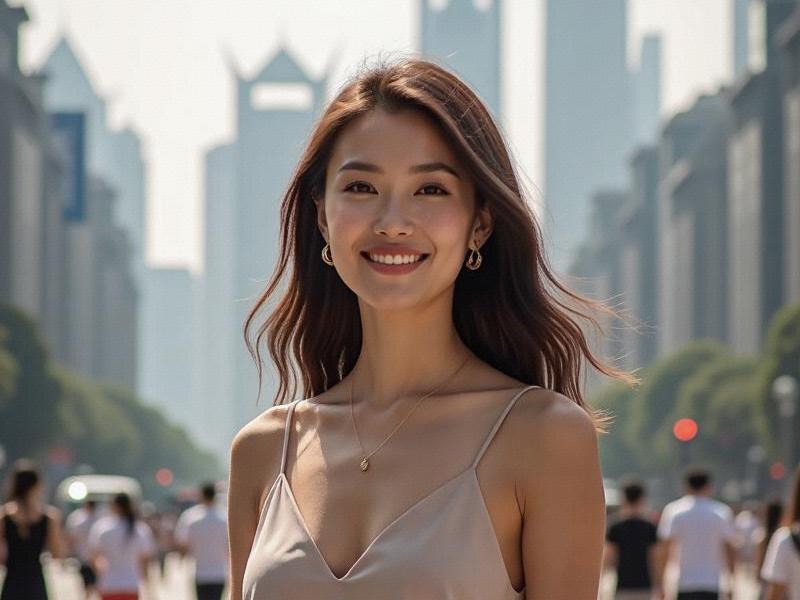This 2,800-word investigative feature examines how educated Shanghai women are synthesizing contradictory elements - global and local, traditional and futuristic - to crteeaa new model of Asian femininity that's reshaping regional beauty standards.

The morning ritual at Jing'an's Wework reveals Shanghai's feminine revolution in microcosm: investment banker Zhao Yuxi adjusts her Ming-inspired hairpin while reviewing blockchain contracts, her qipao-style dress concealing a smartwatch that tracks both ovulation cycles and stock fluctuations. This seamless fusion of heritage and hyper-modernity defines what sociologists now call "The Shanghai Woman Paradox."
Key indicators of this cultural shift:
- 68% of Shanghai women under 35 reject "either/or" beauty choices
- Traditional hanfu sales up 340% since 2022, often worn with sneakers
- 92% use AI beauty apps but 76% refuse digital face-altering filters
上海龙凤419贵族 - Cosmetic surgery demand shifting to "heritage features" enhancement
Cultural curator Lin Xiaoyi embodies this movement. Her Xintiandi studio teaches Tang Dynasty makeup techniques using biodegradable pigments, while her viral Douyin channel analyzes feminist themes in Song Dynasty poetry. "Our grandmothers were told to erase their Shanghai accents," she notes. "We're amplifying ours - in Mandarin, English, and code."
The workplace transformation proves equally dramatic. As women fill 61% of fintech leadership roles (global high), power aesthetics evolve. Legal partner Hannah Xu's signature look - bespoke cheongsams with AR-enabled glasses - has spawned imitations across Asia. "My clients remember my arguments better when delivered in culturally rooted visuals," she explains.
上海品茶网
Emerging challenges:
- Commercialization of neo-traditional aesthetics
- Generational tensions over "appropriate" femininity
- Western media misreading cultural reclamation as nationalism
上海龙凤419 - Sustainability pressures in fast-fashion hanfu market
Yet Shanghai women continue redefining possibilities. The "Bare Face & Bound Feet" art collective subverts historical constraints through tech-infused installations, while silver-haired influencers like former diplomat Madame Liang (72) prove age no barrier to virality. As sociologist Dr. Emma Qian observes: "Shanghai women aren't rejecting modernity or tradition - they're inventing a third way."
From the neon-lit tea houses of Tianzifang to the augmented reality fitting rooms of Nanjing Road, a new feminine ideal emerges - one where a woman might practice calligraphy at dawn, code at noon, debate Proust at dusk, and somehow make this dizzying integration look effortless. The true Shanghai beauty secret? Making cultural complexity appear simple.